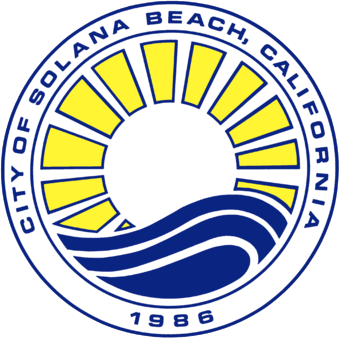- HOW DO I...
Organics Waste Collection (SB 1383)
Beginning in 2022, SB 1383 requires every jurisdiction to provide organic waste collection services to all residents and businesses.
- “Jurisdiction” means a city, county, a city and county, or a special district that provides solid waste collection services.
- “Organic waste” includes food, green material, landscape and pruning waste, organic textiles and carpets, lumber, wood, paper products, printing and writing paper, manure, biosolids, digestate, and sludges.
Checkout EDCO's guide here on how to properly sort your organic waste. Additional resources are available on EDCO's website here.
- What are the requirements for businesses?
-
Businesses are required to either:
- Subscribe to and participate in their jurisdiction’s organics curbside collection service OR
- Self-haul organic waste to a specified composting facility, community composting program, or other collection activity or program. If you are self-hauling or back-hauling, you are required to fill out a self-haul request form and complete the Annual Weight Ticket Report.
- However, if a business does not generate any of the materials that would be collected in a specific container, then it does not have to provide that particular container.
- If a business chooses to use containers that are the correct color, internal containers do not need to be replaced until they are no longer functional or until January 1, 2036, whichever comes first.
- Businesses must periodically:
- Inspect organic waste containers for contamination
- Inform employees if containers are contaminated
- Instruct employees about how to properly sort material into the correct containers.
- Employees
- Tenants
- Contractors
- Customers
- Annually educate employees, contractors, customers, and tenants on how to properly sort organic waste into the correct bins, AND
- Provide information to new tenants within 14 days of occupation of the premises.
- Can I get a waiver from this requirement for my business?
-
Your business may request a waiver from the organics recycling requirement for two reasons only:
1. De Minimis Waiver Request
- The commercial business's total solid waste collection service is less than two cubic yards per week OR
- The commercial business's organic waste is less than 20 gallons per week of the total waste
2. Physical Space Waiver Request-If the premises lack adequate space for a green EDCO container.
If either of these situations apply to your business then please complete this online form:
Organics Collection Waiver Request Form
Approval of your waiver request is subject to verification by EDCO and final approval from the City Manager.
- What are the requirements for public schools and school districts?
-
Public schools and school districts, state agencies, special districts, and federal facilities do not fall under a jurisdiction’s authority and must either:
- Subscribe to a collection service that the jurisdiction provides
- Contract for collection service independently OR
- Self-haul organic waste to a specified composting facility, community composting program, or other collection activity or program.
- Property managers and administrators must periodically:
- Inspect organic waste containers for contamination
- Inform employees if containers are contaminated AND
- Instruct employees how to properly sort material into the correct containers.
- However, if an entity does not generate any of the type of material collected in a specific container, then the property management or administrator does not have to provide that type of internal container.
- If a property manager or administrator chooses to use containers that are the correct color, internal containers do not need to be replaced until they are no longer functional or until January 1, 2036, whichever comes first. They can adhere correct labels to existing internal containers to comply with SB 1383.
Information for Residents
Use your green cart to separate landscape waste, food scraps, and other organic materials for collection each week on your scheduled service day and set out by 6 a.m. or the night before.
- Residential customers receive one green 96-gallon organics cart.
- Two additional green carts are available at no extra cost.
- Residents requiring a fourth 96-gallon cart or more may request additional green carts for a nominal monthly fee.
CLICK HERE to request additional carts through EDCO’s Contact Us form.
HELPFUL RECYCLING GUIDES
- EDCO's Recycling Guide is the most accurate source for what to include in your Blue Bin to recycle.
- EDCO's Organics Recycling webpage has the most accurate information about what to place in your green bin.
- iRecycleSmart is a website created by CalRecycle as part of a California-wide education campaign.
- New Organics Recycling Program Roll-Out Brochure
- Folleto de Lanzamiento del Nuevo Programa de Reciclaje de Productos Orgánicos
- Self-Haul Organics Recycling Guide for Landscapers, Gardeners, and Contractors
To learn more about EDCO's Anerobic Digestion (AD) Facility and Organics Recycling Program, visit the EDCO website.
Contact Us
Nicole Grucky, Senior Management Analyst 858-720-2467
